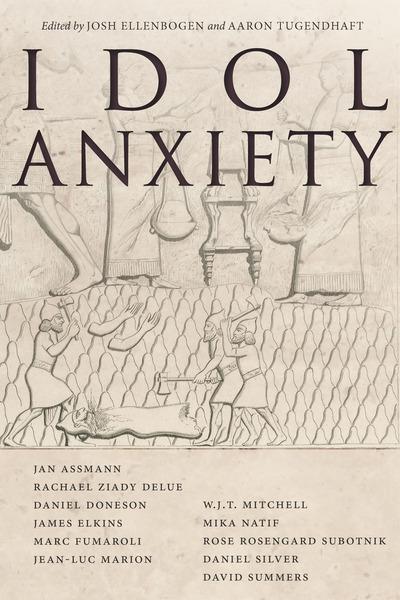
2011
256 pages.
from $26.00
Paperback now $13.00 (50% off)
Hardcover ISBN: 9780804760423
Paperback ISBN: 9780804760430
Ebook ISBN: 9780804781817
This interdisciplinary collection of essays addresses idolatry, a contested issue that has given rise to both religious accusations and heated scholarly disputes. Idol Anxiety brings together insightful new statements from scholars in religious studies, art history, philosophy, and musicology to show that idolatry is a concept that can be helpful in articulating the ways in which human beings interact with and conceive of the things around them. It includes both case studies that provide examples of how the concept of idolatry can be used to study material objects and more theoretical interventions. Among the book's highlights are a foundational treatment of the second commandment by Jan Assmann; an essay by W.J.T. Mitchell on Nicolas Poussin that will be a model for future discussions of art objects; a groundbreaking consideration of the Islamic ban on images by Mika Natif; and a lucid description by Jean-Luc Marion of his cutting-edge phenomenology of the visible.
About the authors
Josh Ellenbogen is Assistant Professor of History of Art and Architecture at University of Pittsburgh.
Aaron Tugendhaft teaches philosophy and history of religions at the Gallatin School, New York University. He was guest curator of the 2008 exhibition Idol Anxiety at the Smart Museum of Art in Chicago.
"Idol Anxiety opens a broad vista onto a critical but understudied topic of interdisciplinary interest beyond the fields of art history and religious studies. Religious, social, political, philosophical, and cultural methodologies create a unique matrix within the multiple scholarly approaches toward idolatry reflected herein. Editors Ellenbogen and Tugendhaft deserve praise for their development of this topic and for the academic breadth of their invited contributors."
— D. Apostolos-Cappadona, Choice
"Idol Anxiety is a fresh, eclectic combination of established and new voices on an old problem that is important to at least three different fields: religious studies, art history, and philosophy."
—Seth Sanders, Trinity College
"This collection is essential reading for anyone concerned with idols, made things, and our longstanding attraction to them."
—Glenn Peers, University of Texas at Austin